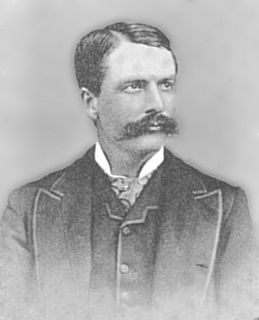A Quote by Terry Pratchett
You can’t say ‘if this didn’t happen then that would have happened’ because you don’t know everything that might have happened. You might think something’d be good, but for all you know it could have turned out horrible. You can’t say ‘If only I’d…’ because you could be wishing for anything. The point is, you’ll never know. You’ve gone past. So there’s no use thinking about it.
Related Quotes
I guess that's the secret. It would never have occurred to Lia to want to escape -- but then she gets kicked out. Best thing that ever happened to her? I'm not sure she would say yes, because obliviousness tends to be rather pleasant, but once you realized you've been bolivious, there's no turning back. You can't un-know what you know. You know?
MacGyver of course, that's probably my favorite show of all time, because it was a guy who was so, so smart and could use his wits, and his technical know-how could get him out of any situation. There's something about the adventurer aspect of that show that I loved, that he went on all these great missions and saved people without having to use guns or anything like that. And I think that show might even be coming back, too.
Life and study have persuaded me of the openness of history. There is no inevitability in history. Thinking about what might have happened, what could have happened, is a necessary element in trying to understand what did happen. And if, as I believe, individual acts of decency and courage make a difference, then they need to be recorded and remembered.
Whether or not belive in Fate comes down to one thing: who you blame when something goes wrong. Do you think it's your fault - that if you'd tried better, worked harder, it wouldn't have happened? Or do you just chalk it up to circumstance? I know poeple who'll hear about the people who died, and will say that it was God's will. I know people who'll say it was bad luck. And then there's my personal favorite: They were just in the wrong place at hte wrong time. Then again, you could say the same thing about me, couldn't you?
Most argument, and in fact most conflict, has nothing to do with the present. It's always about the past or the future. People can't agree on the details of what has happened or is going to happen. But we rarely know what has happened, and we never know what is going to happen. What is really at dispute is how we will deal with not knowing.
The Work reveals that what you think shouldn't have happened should have happened. It should happened because it did, and no thinking in the world can change it. This doesn't mean that you condone it or approve of it. It just means that you can see things without resistance and without the confusion of your inner struggle. No one wants their children to get sick, no one wants to be in a car accident; but when these things happen, how can it be helpful to mentally argue with them? We know better than to do that, yet we do it, because we don't know how to stop.
It would be a wonderful experience to stand there in those enchanted surroundings and hear Shakespeare and Milton and Bunyan read from their noble works. And it might be that they would like to hear me read some of my things. No, it could never be; they would not care for me. They would not know me, they would not understand me, and they would say they had an engagement. But if I could only be there, and walk about and look, and listen, I should be satisfied and not make a noise. My life is fading to its close, and someday I shall know.
I'm not really sure why so much people still listen us. I think we live in an era when people get attached to stuff, and it means something. Then I think a lot of people heard about it over the years - like somebody's older brother might tell them, you know, because we're from his era, and he might be like, "You need to listen to this; this is what it's all about," you know what I mean? I don't know, man, it's hard to say. But it makes us feel special.


































